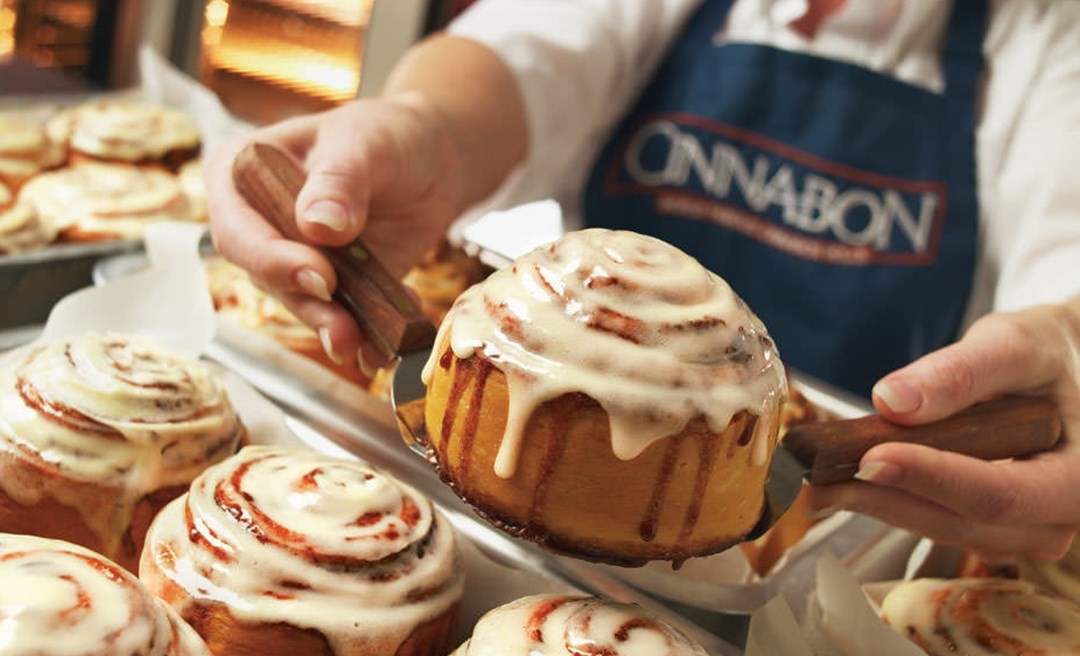San Francisco, 2008. It’s 11am on a brisk Saturday morning and I’m sitting at Millers Cafe on Polk street.
I look at the menu and I want to order everything RIGHT NOW.
Stress is high.
To say I’m hungry is a huge understatement. I’m ravenous. Ok fine, I’m hangry!
I signal the waiter over and quickly order the biggest thing on the menu, a monster 4-egg breakfast burrito.
Sitting with my roommate Stephen, I’m even a little irritable with him. I’m cutting off parts of the conversation because I can’t stop thinking about food. A small dog sitting just outside the door pierces the air relentlessly with little yaps. Maybe she’s hangry too!
20 minutes go by. Hanger increasing.
Finally after about 25 minutes, the burrito arrives. Conversation at the table grinds to a halt and I start tearing into my monster breakfast burrito.
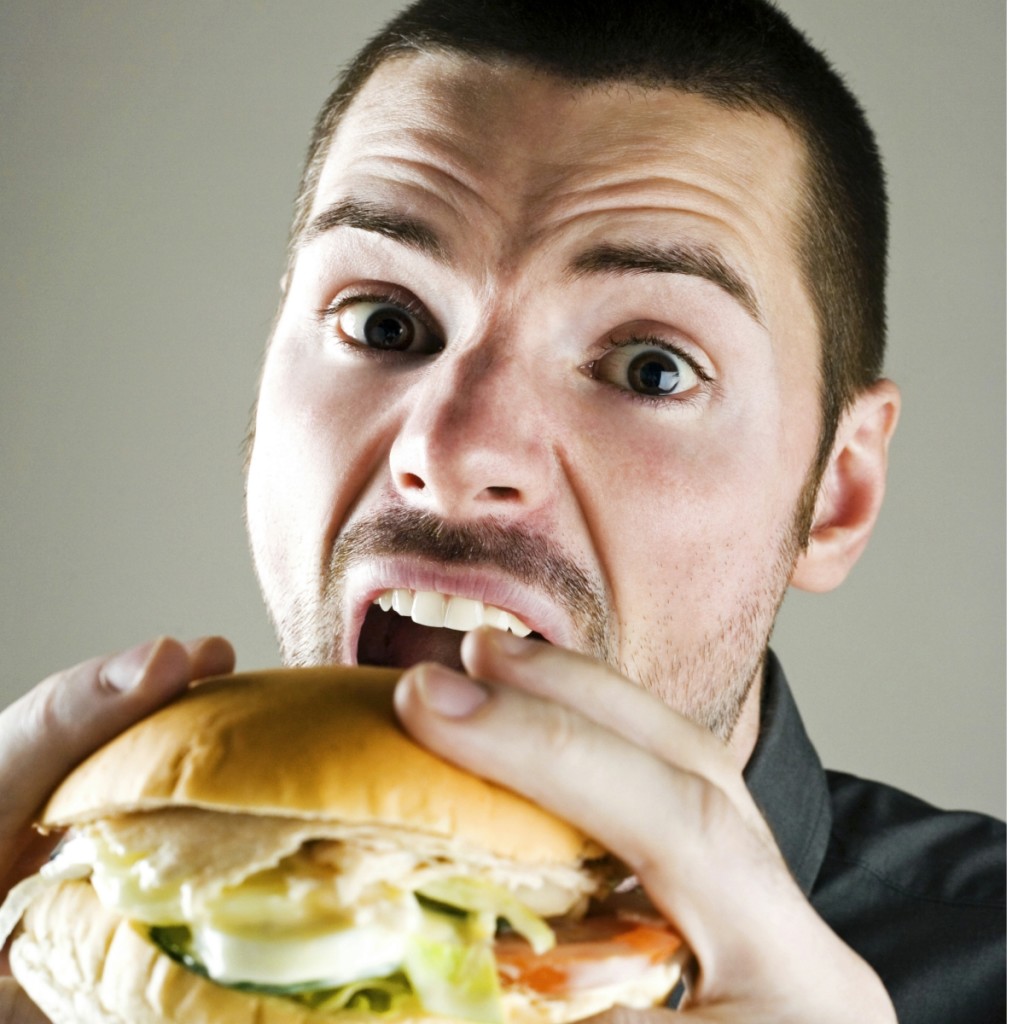
Whew..order has been restored.
But that was a close one. It literally felt like I was going to lose my shit. It felt like a real emergency situation.
This sound familiar? Maybe you’ve found yourself in a similar situation when hunger completely took over your entire mind?
Today I’m going to explain how you can think differently about food and hunger and how that can transform the way you feel, look, and move through life.
I look back at that experience and now realize how much different my situation is today. I routinely go without breakfast on many mornings and I feel great. No hanger. No irritability. I can handle long bouts of time without food and not stress about it.
What the heck happened over the last 10 years?
Stress Less Over Food With These 2 Steps
Here are the two major elements that have allowed me to live a fit, healthy lifestyle without stressing about food.
1) I’ve become less of a sugar burner.
When you rely on too many carbohydrates in your diet, the body becomes overly reliant on that energy source. You create huge blood sugar swings with higher carbohydrate loads which can cause excessive hunger. When you restrict carbs for a period of time or reduce carb intake, you’re body is forced to access fat for energy. This keeps blood sugar in check and you avoid the big blood sugar swings that create irritability and hunger. No more hanger, thank goodness!
2. Hunger is not an emergency.
I’ve built the skill of awareness in my body to understand that hunger is not an emergency. I’m able to feel the difference between true physical hunger and psychological hunger. True hunger is different from the desire to eat. I can now feel those true hunger signals and I’m less distracted by all the hunger “noise” that bombards us everyday.
So, here’s what you can do about it.
1) Become Less Of A Sugar Burner
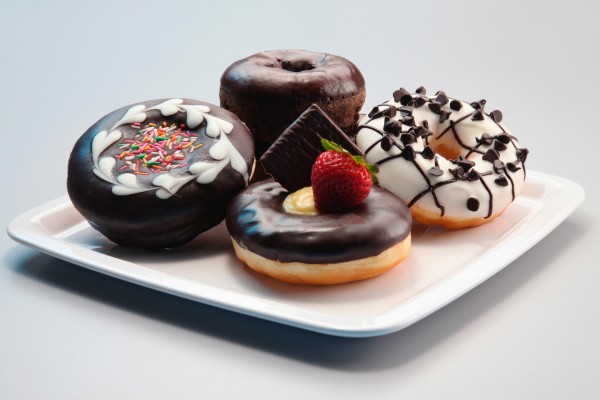
When you reduce your carbohydrate intake, especially the refined type (cakes, candies, breads, sodas, etc), your body can better breakdown fat for energy.
Transitioning from a sugar burner to a fat burner is one of the most important things you can do to stay lean, but more importantly it’s a way to reduce your risk of certain metabolic diseases (like diabetes, high blood pressure, and obesity) that come from being a sugar burner. You can read more about the importance of being metabolically flexible here.
Practical steps to achieve this goal:
- Start by eliminating sugary drinks. Sodas, energy drinks, fruit juices, sweetened coffee or tea drinks, etc.
- Replace starchy carbs (potato, pasta, or bread) with vegetables.
- Watch out for the overconsumption of tropical fruits (bananas, mangos, pineapples are some of the highest sugar fruits). Stick with berries instead.
- Make this a habit that you practice daily.
- Don’t try and be perfect. Aim for pretty good.
2) Think Differently About Hunger. It’s Not An Emergency
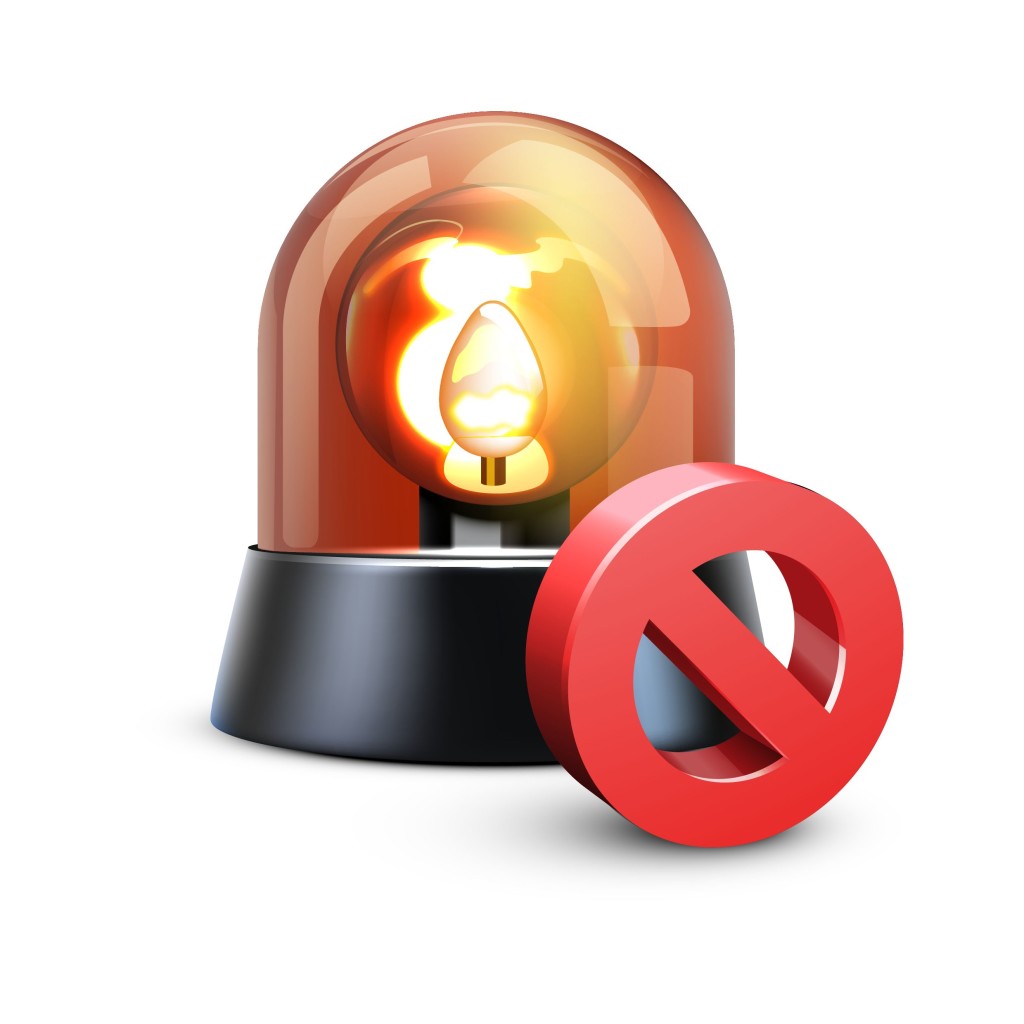
If you’re living in Africa and you literally have no access to food, then hunger is an emergency. For 99.999% of you reading this, hunger is not an emergency.
I know it might feel like it is at certain times, but trust me, the human body can go days, if not weeks, without food. That’s how our biology has adapted over millions of years of evolution.
But, in order to feel this lack of emergency in your body, you need to a have some awareness.
It’s a skill that’s built over time that allows you to be OK without food in the moment. It’s the ability to know the difference between hunger signals VS hunger noise.
This is one of the foundational principles that I use with all clients. It’s a Precision Nutrition concept that I utilize everyday to help guys make better choices. When you make better choices with food, you set yourself up for a lifetime of health, vibrance, and wellness.
You’re no longer controlled by the primitive machinery in our brains.
The core concept is understanding the difference between true physical hunger, which are signals from the body to the brain, AND what I like to call, background hunger noise. Some examples of “noise” includes:
- Your current environment. (Airport = Cinnabon)
- The habitual eating based on a specific time or place. (It’s 1pm, I should be hungry.)
- The cravings for a certain type of food.
- The simple desire to eat.
Once you start paying attention, you’ll notice that so much of hunger is “noise”. Next time you feel hunger, drill down to exactly what it is that you feel.
Are you light-headed?
Is your stomach growling?
Notice what’s coming to you. Take 5 seconds to simply tune into that feeling. What is it?
Many times we’re not hungry at all, but maybe we’re bored and feel like eating? Or stress plays a huge role as well as many of the eating patterns that I see come from stress eating. It’s not true hunger at all.
This 5-second test should give you an idea of what’s really going on.
Pay Attention To Your Environments
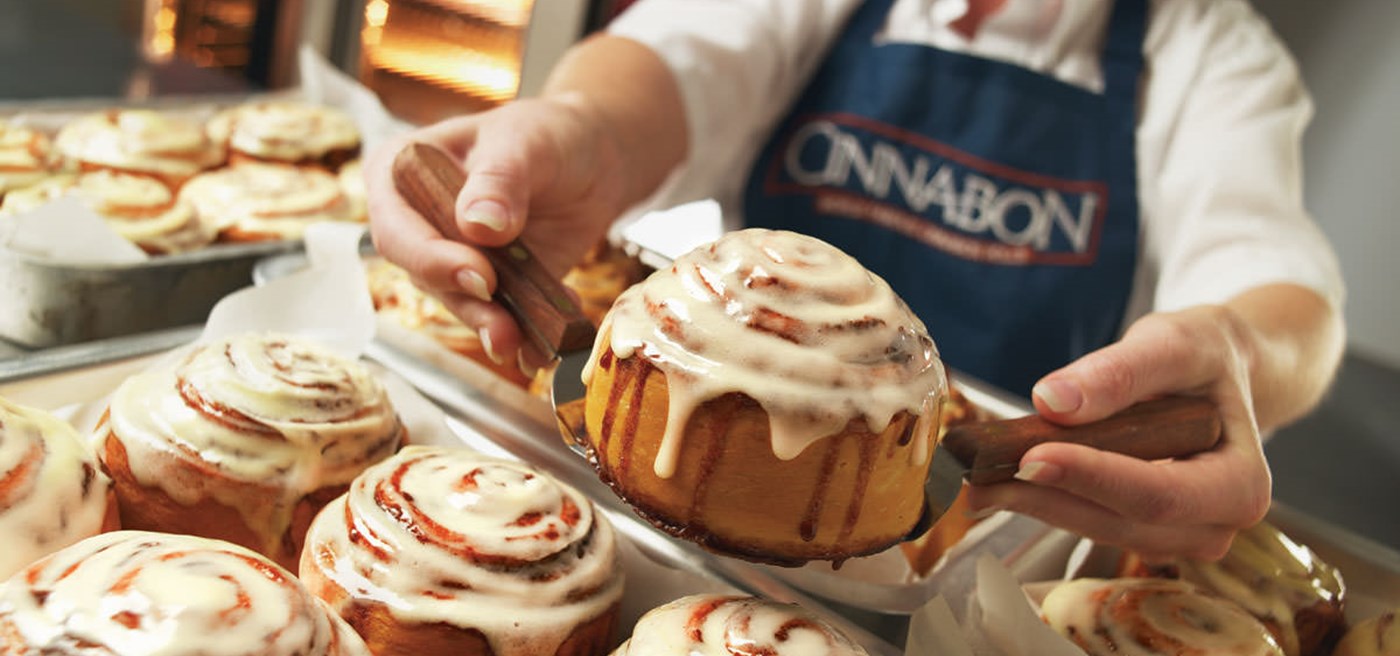
If you walk through an airport, chances are you’ll get hit upside the head with that infamous Cinnabon smell. It seems to find it’s way into even the most distant parts of every terminal. Well, here’s the thing, it’s a hunger “noise” that will mess with your hunger signals.
The key is to make your environments work for you.
Think about those situations where you struggle? If you do get tempted to grab a Cinnabon, maybe it’s worth stashing a protein bar in your bag so you’re not hungry when you walk by the kiosk.
Maybe it’s peer pressure at social gatherings when you’re totally stuffed but the host comes over and asks if you want some more…all the people next to you are having seconds, you say something like, “I probably shouldn’t but OK, why not”.
Or think about situations where you make good choices. What are the elements of that environment?
Maybe it’s the people you are with?
Maybe it’s the physical location?
The idea is to see where you are having success and see if there is a way to get more of that in your life.
Careful Of “Should”
One test that is fundamental to the way I coach using the Precision Nutrition model is the “should” test. If you find yourself saying “should” chances are that it’s noise.
- It’s 1pm, I’m not that hungry, but it’s lunchtime, I should be hungry.
- Or, “ok it’s 7am, I’m not hungry but I “should” eat some breakfast.
Or it’s an emotional thing..”Man, it’s been a long week, I’ve earned some beer and pizza.”
Daily Practice Is The Key
Remember this is all practice. You will fail miserably and this is precisely the point. That means you’re trying, you’re in action. You’re doing shit. You’re not reading the latest article on how to get fit. You’re actually in the arena getting mud on your face. You’re playing the game. Part of that game is failure. You will bounce back. You will get better over time.
Act As If
Lean, fit people don’t just magically become lean, fit people. They think about food differently than people who are not fit. They don’t freak out when they don’t have food readily available. There is no panic button that goes off that triggers an action of “eat whatever is in front of my face now!!”
They know that hunger comes and goes.
For me personally, I’ve been skipping breakfast most days for the last couple years and I know right around 9am I start to get really hungry. But I know I’ve been there before and just after the hunger peaks, it backs off quite a bit. I know that I’ll experience a few more hunger peaks before lunch, but they are manageable because I know they are fleeting.
There is no emergency.
Remember, true hunger is a physiological response in the body. You release hormones that make your stomach growl or become lightheaded. This is distinctly different than the desire to put food in your mouth that tastes good and gives you pleasure in the moment.
Your ability to know and feel the difference in your body will transform how you think about food.
When you develop that skill of awareness, you start to become OK with hunger. Hunger is not a panic situation. Hunger will come and go. It will peak and subside.
Most importantly, you don’t let it rule your life, you are always in control.
And the most important part is that when you stress less about food, you open up more mental space for other things in your life. You have more energy to do what you’re here to do. You can focus on what truly matters to you.
You with me?
What To Do Next
Our free Meal Plan Guide below will help set up your environment so that you can stop stressing about food. Grab your copy below.

